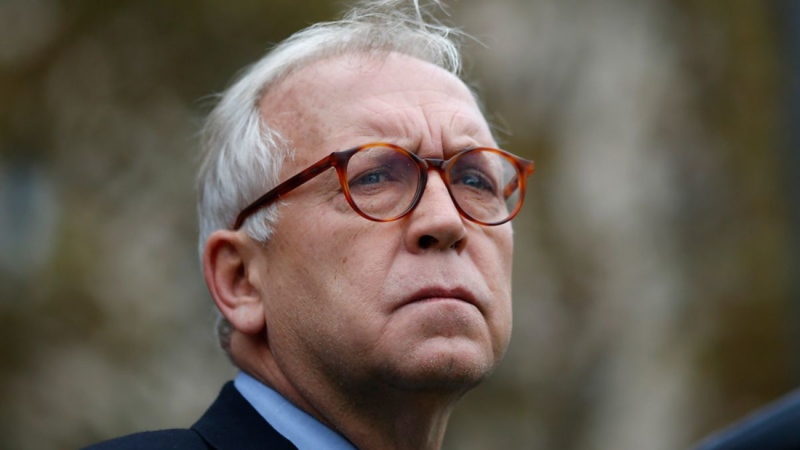Chile’s Domestic Policy Priorities
This post is also available in: Español

Under a context of intense political reforms, the Chilean government has put forward a number of ambitious goals aiming at an integral constitutional reform. That said, different political sectors have expressed concerns about the pace and scale of such reforms, and their possible effects on the country’s investment and political climate. Corruption allegations have undermined public confidence in the country’s political and business establishments. The economy has also suffered mainly because of low copper prices. To discuss the main issues confronting Chile, the Inter-American Dialogue welcomed Jorge Burgos, Chile’s minister of the interior, for an open exchange on these issues. Michael Shifter, president of the Inter-American Dialogue, moderated the event.
The opening remarks by Shifter focused on the context mentioned above. Chile is going through a crucial political moment driven by the expectation of an overreaching constitutional reform. However, the country also faces different challenges in fighting corruption and achieving economic stability. Shifter invited Burgos to comment on these aspects.
For Burgos, the overall discontent around politics is spread throughout Latin America. There has been a consistent decrease in favorability rates of politicians in Latin America in the past 10 years. Nevertheless, the root of this discontent cannot be easily determined. In the case of Chile, he argued, the economic situation is not the root cause of the discontent, since there is no economic crisis. The minister instead described the fundamental cause of political discontent in the region as a “crisis of the elites.”
Particularly, Burgos mentioned three groups of elites under crisis:
- Moral elite: Represented by a crisis of prestige of the churches in Chile, this crisis of morality has repercussions for politics. The fact that 60% of the Chilean population is catholic only magnifies the impact of discontent with religious leaders;
- Political elite: In the political realm, the crisis has grown out of the large number of corruption and influence-peddling scandals, particularly those involved in campaign financing;
- Business elite: The business world has also been affected by a series of scandals. Burgos highlighted the effects of campaign financing in this particular crisis, since private enterprises have been responsible for the majority of the scandals in the political elite.
That said, Burgos remains optimistic about the situation in Chile even though he recognized that corruption is a problem for almost all countries in the world. What makes the difference in this issue is how governments react to the problem. Chile is, to him, a country that refuses to accept corruption, which has led the government and business enterprises to react effectively in the fight against this complicated matter.
Burgos also explained some of the different reforms presented by the Bachelet administration. The Chilean government seeks to consolidate a transparent democratic system by enacting regulation between businesses and politics that inhibit campaign financing. Moreover, Chile seeks to enhance laws that prosecute infractions against free trade and bring proper conditions for political financing based on transparency of the political parties.
Within the different reforms in the country, Burgos commented specifically on the ongoing education reform. Currently, Chile has approved a new “inclusion law.” This piece of legislation allows municipal and private schools to take in more diverse student bodies through state financial support. In addition, Burgos pointed out the ongoing discussion of a teaching career bill and a bill that allows free education at the college level.
The situation of indigenous people or “pueblos originarios” is also being debated in the new constitutional reforms. For Burgos, the current situation of the Mapuche tribe in the Araucania region highlights the importance of protecting such people within Chile. Chile has maintained a strict land policy with indigenous peoples and has guaranteed their safety with police assistance. Nevertheless, such land policy states that groups of people involved in criminal activity will not be granted land in the country. Burgos thinks it is time to perfect the current framework and look for ways for the indigenous population to be better integrated into their own country. For Burgos, it is difficult to think that a new constitution will not include designated political seats for indigenous people.
To conclude, Burgos commented on the security situation in Chile. He argued that the Chilean people have experience a growing sense of insecurity over the last 10 years. However, this is only a perceived crisis, and not perhaps a real one. Kidnappings do not occur in Chile and the police force is one of the most well-qualified and trusted institutions in the country. Furthermore, Chile is widely considered to be one of the most peaceful countries in the world. Largely because of sensationalism in the media, Chileans have felt an increase in feelings of victimization, which should not be the case. This particular situation demands that the government redirects efforts to understand and counteract the true causes of such apparent victimization,



















